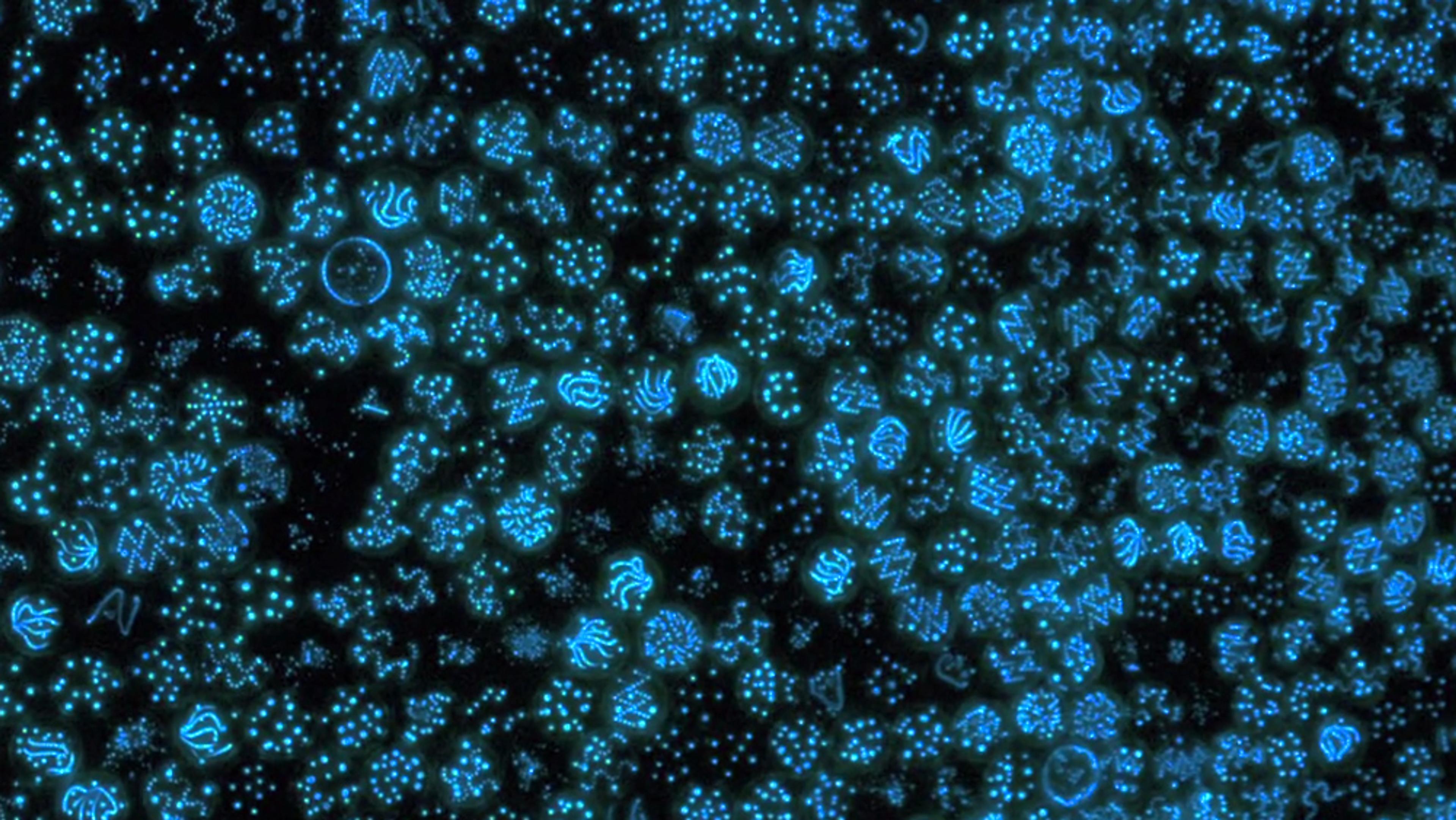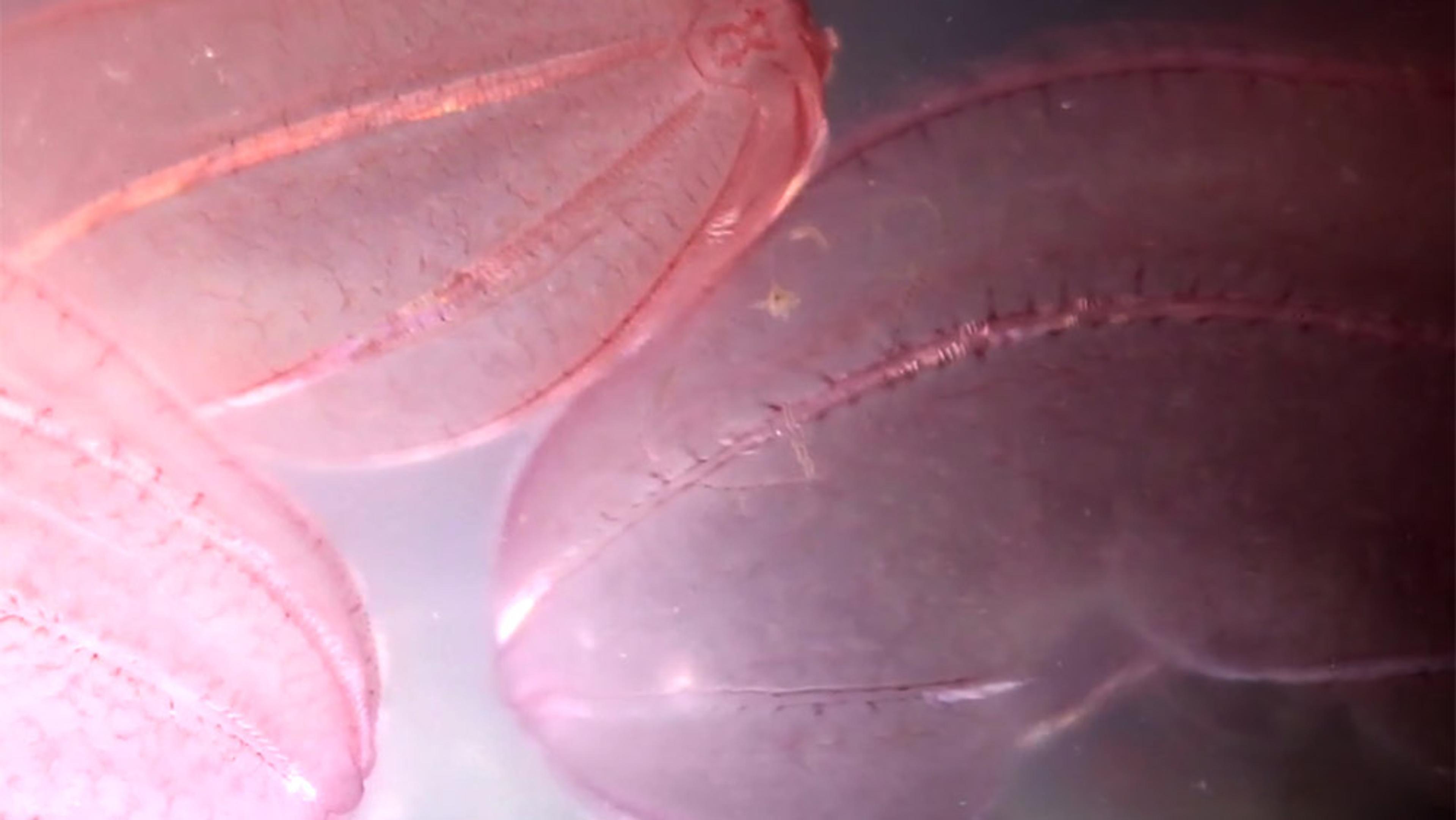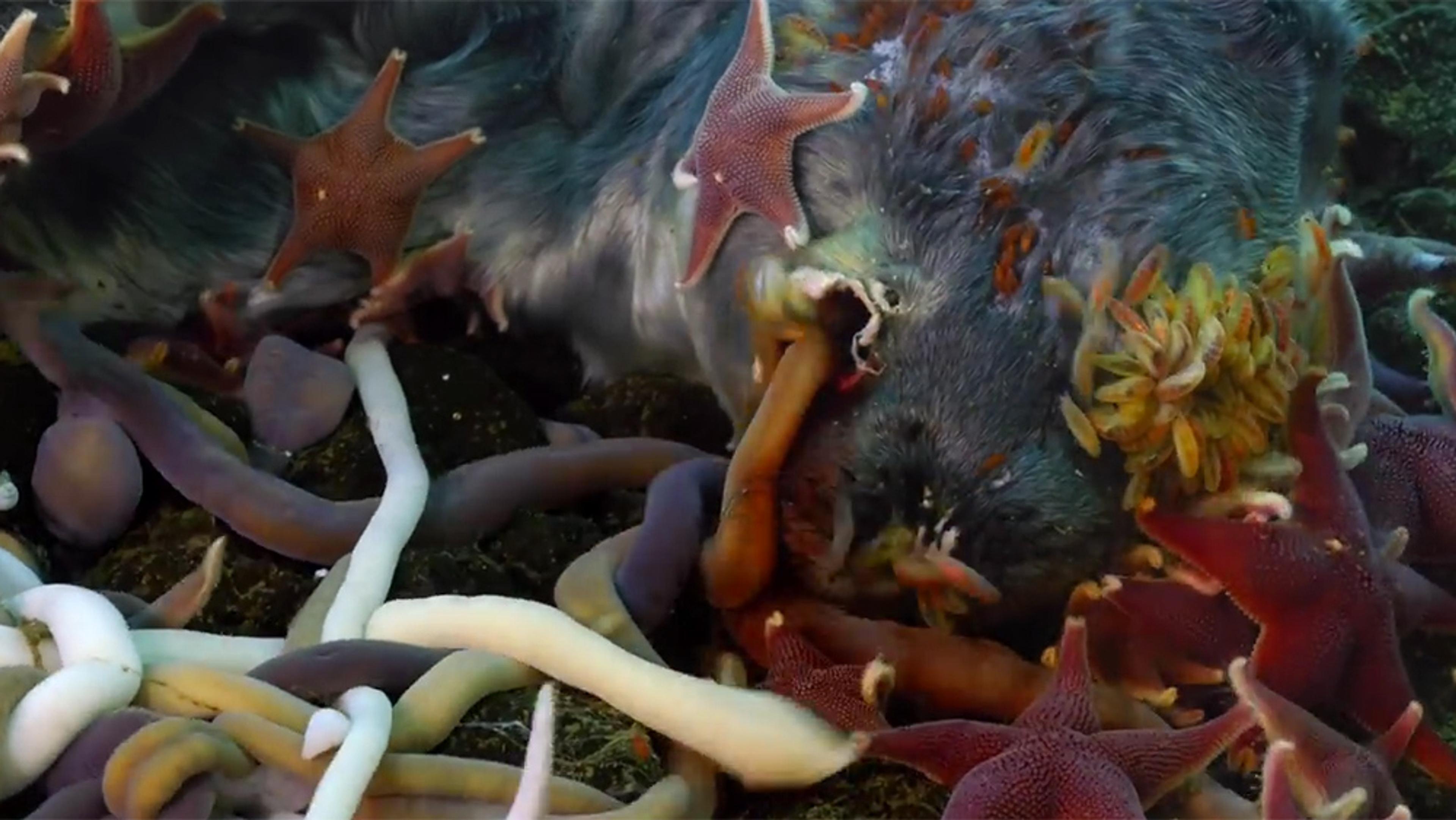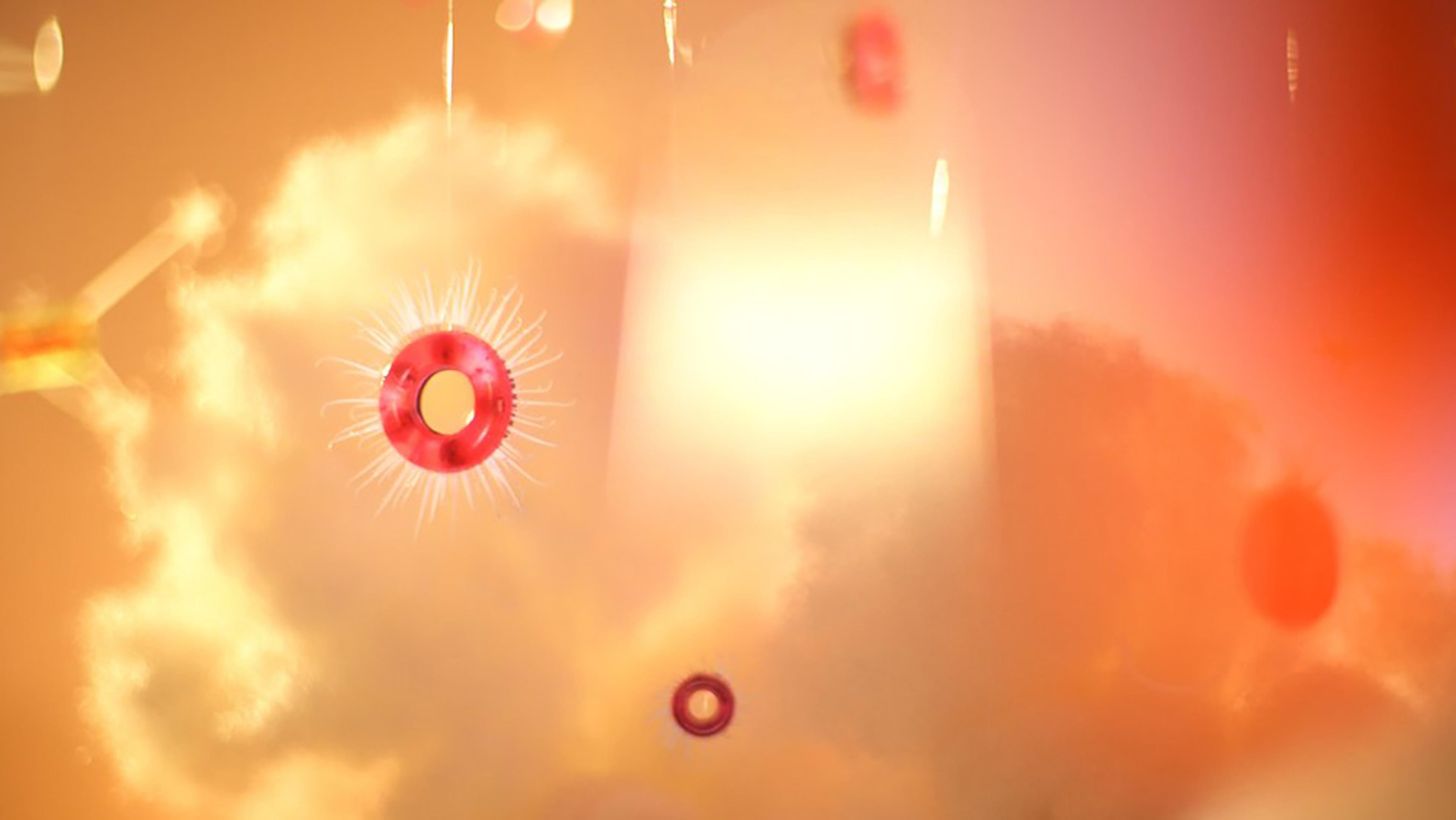Glass sponge gardens, bioluminescent octopus squid and a 150-foot siphonophore – the longest animal ever recorded – were just a few of the discoveries made aboard the research vessel Falkor off the coast of Western Australia earlier this year. Led by Nerida Wilson, senior research scientist at the Western Australian Museum, the expedition explored never-before-seen ocean canyons and coral reefs using a remotely controlled robotic vehicle capable of descending to depths of 4,500 metres. Accompanied by words of insight and wonder from the expedition’s scientists, this video offers both a rare look at bioluminescent deep-sea life and a glimpse into how the human impulse for exploration helps to drive scientific discovery.
See what no human eyes have seen before, deep in the sea off Western Australia
Video by the Schmidt Ocean Institute

videoEcology and environmental sciences
How beautiful bioluminescent bacteria can expose invisible water pollution
3 minutes

videoEvolution
Take a shimmering, surreal swim with what might be the Earth’s oldest animals
7 minutes

videoEvolution
Nearly stingless jellyfish on a remote Pacific island are a wonder of evolution
4 minutes

videoBiology
Join massive, ancient carnivores for a rare feast beneath the Antarctic ice
3 minutes

videoBiology
How airborne microbes ride clouds, hop continents and even make it rain
5 minutes

videoEvolution
Pygmy seahorses survive by disappearing into the world around them
2 minutes

videoEcology and environmental sciences
How a tiny group of insects escaped extinction by hiding in a bush for 80 years
20 minutes

videoEcology and environmental sciences
Watch as wanderlust propels mussels on epic journeys worthy of a Pixar movie
5 minutes

videoHistory of science
‘I could not but wonder at it’: history’s first glimpses into the microbial world
7 minutes